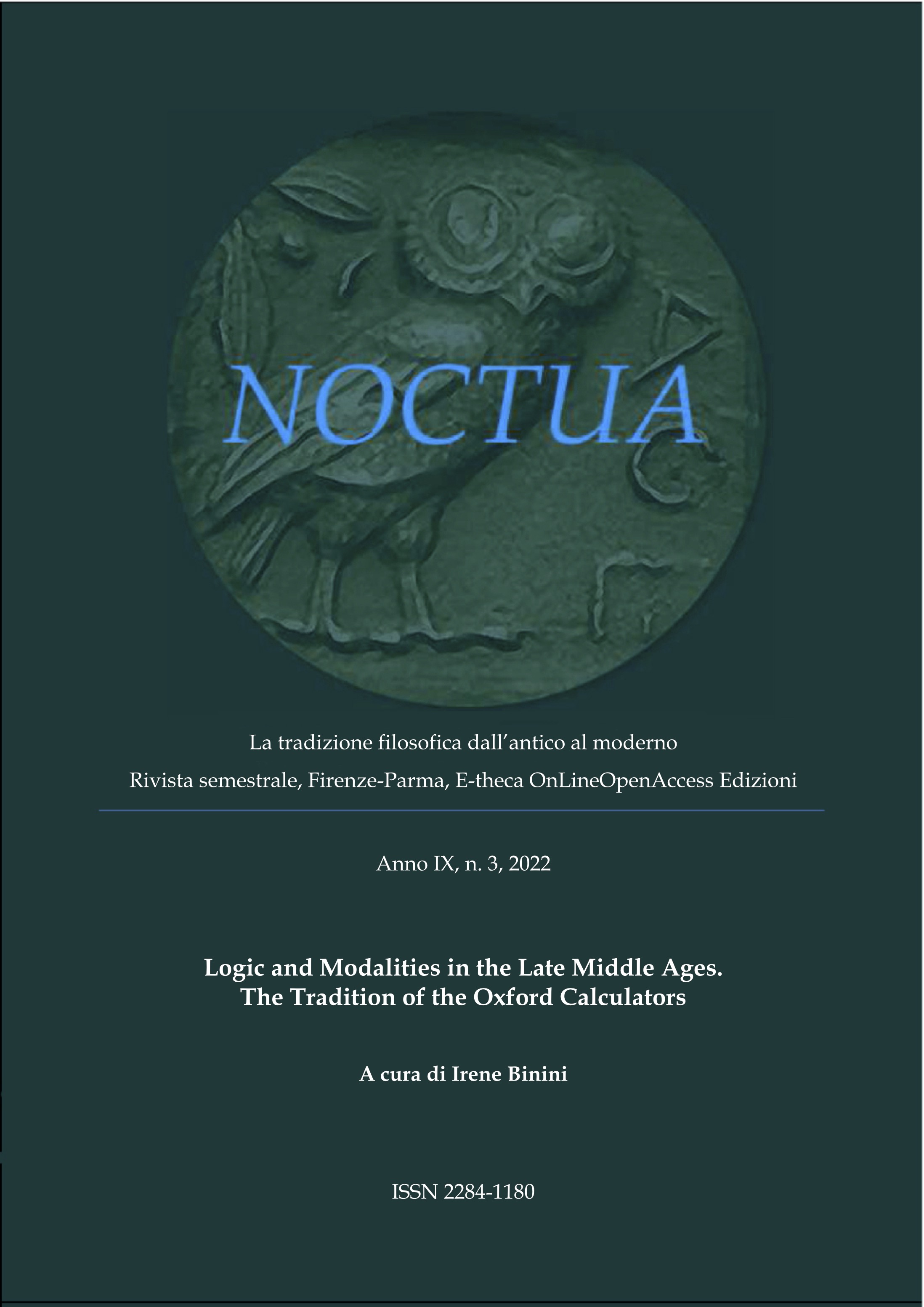Medieval Theories on the Conceivability of the Impossible: A Survey of Impossible Positio in Ars Obligatoria during the 13th–14th Centuries
DOI:
https://doi.org/10.14640/Noctua2022_1Keywords:
conceivable vs. inconceivable impossibility, positio impossibilis, Tractatus Emmeranus, William of Sherwood, Walter Burley, William of Ockham, Roger Swineshead, Thomas BradwardineAbstract
During the 13th century, several logicians in the Latin medieval tradition showed a special interest in the nature of impossibility, and in the different kinds or ‘degrees’ of impossibility that could be distinguished. This discussion resulted in an analysis of the modal concept with a fineness of grain unprecedented in earlier modal accounts. Of the several divisions of the term ‘impossible’ that were offered, one became particularly relevant in connection with the debate on ars obligatoria and positio impossibilis: the distinction between ‘intelligible’ and ‘unintelligible’ impossibilities. In this article, I consider some 13th-century tracts on obligations that provide an account of the relation between impossibility and intelligibility and discuss the inferential principles that are permissible when we reason from an impossible – but intelligible – premise. I also explore the way in which the 13th-century reflection on this topic survives, in a revised form, in some early 14th-century accounts of positio, namely, those of William of Ockham, Roger Swineshead and Thomas Bradwardine.
Downloads
Published
Issue
Section
License
Noctua pubblica contributi Diamond Open Access secondo i termini della licenza CC BY / Noctua publishes Diamond Open Access contributions under the terms of the CC BY license.






